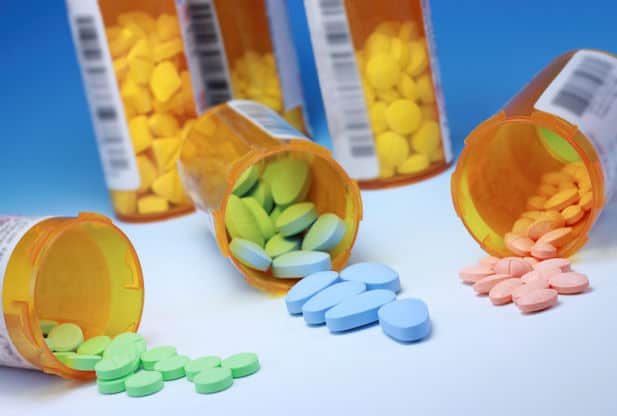
Patients are more likely to stop taking essential cardiovascular drugs after a heart attack when there is a change in the color shape of their generic medications, a study published on July 14th in the Annals of Internal Medicine found. The U.S. Food and Drug Administration (FDA) does not have any regulations to keep the […]
 Patients are more likely to stop taking essential cardiovascular drugs after a heart attack when there is a change in the color shape of their generic medications, a study published on July 14th in the Annals of Internal Medicine found. The U.S. Food and Drug Administration (FDA) does not have any regulations to keep the appearance of generic drugs similar.
Patients are more likely to stop taking essential cardiovascular drugs after a heart attack when there is a change in the color shape of their generic medications, a study published on July 14th in the Annals of Internal Medicine found. The U.S. Food and Drug Administration (FDA) does not have any regulations to keep the appearance of generic drugs similar.
Recently, there have been some safety concerns about the quality of generic drugs manufactured overseas. Generics are supposed to work just as well as the brand name, but are much more affordable due to an expired patent.
The study was led by Aaron S. Kesselheim, MD, JD, MPH, assistant professor of medicine in the Division of Pharmacoepidemiology and Pharmacoeconomics at BWH. Using a large national database, Kesselheim and his team gathered records of more than 10,000 patients who were discharged from hospitals between 2006 and 2011 after suffering a heart attack. Initial treatment included generic beta-blockers, angiotensin-converting enzyme inhibitors, angiotensin-II-receptor blockers, or cholesterol-lowering statins to reduce the risk of another heart attack. The researchers looked at breaks in refills, or non-adherence, and then analyzed whether or not the pills had changed in appearance in the previous two refills.
“After patients have a first heart attack, guidelines mandate treatment with an array of long-term medications and stopping these medications may ultimately increase morbidity and mortality,” said Kesselheim. “Medications are essential to the treatment of cardiovascular disease and our study found that pill appearance plays an important role in ensuring patients are taking the generic medications that they need.”
A change in pill color increased the chance of non-adherence by 34 percent, the researchers found. Changes in pill shape raised this likelihood to 66 percent.
“The association between changes in pill appearance and non-adherence to essential cardiovascular medications has important implications for public health,” said Kesselheim. “This study suggests the need for physicians and pharmacists to proactively warn patients about the potential for these changes, and reassure them that generic drugs are clinically interchangeable no matter how they look, especially in light of the prevalent use of generic drugs and public health importance of promoting patient adherence to essential medications.”
Dr. Reddy’s Laboratories recalled over 13,000 bottles of the generic hypertension drug metoprolol succinate in June due to a failed dissolution test. In May, Wockhardt Ltd recalled 109,744 bottles of metoprolol succinate for the same reason. The company is already banned from exporting drugs to the United States from two India-based facilities that had quality issues.


